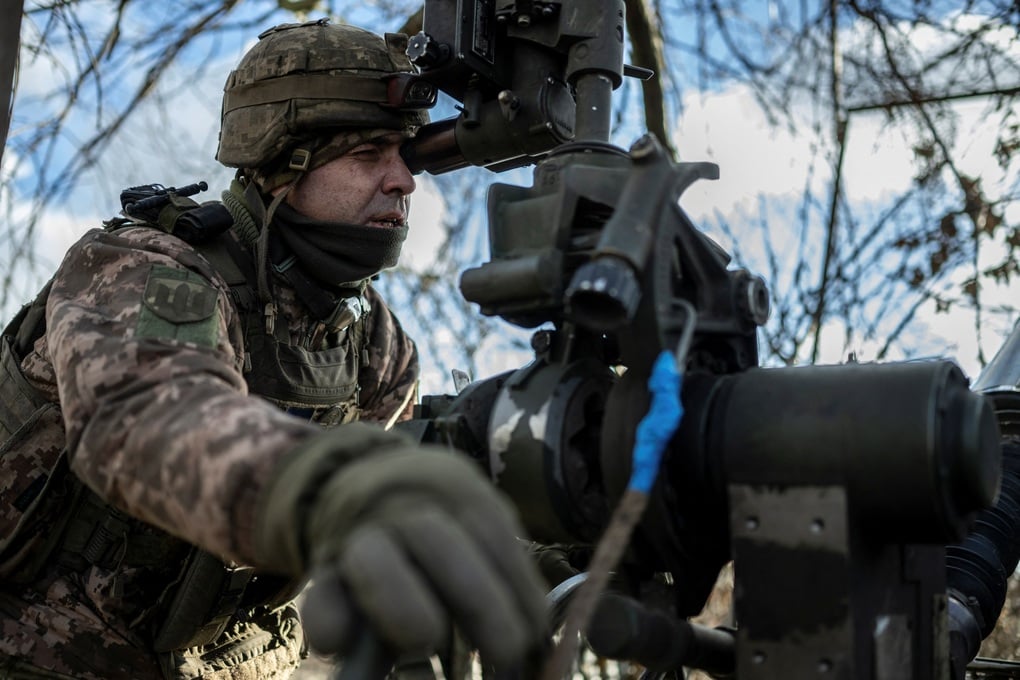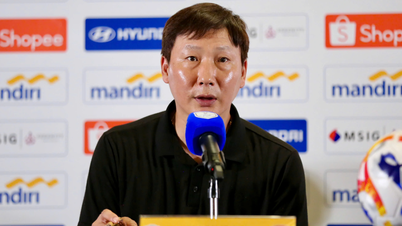
Ukrainian soldiers prepare to fire artillery near Donetsk (Photo: Reuters).
After nearly two years of conflict, the war in Ukraine appears to have entered a stalemate. The situation on the battlefield has not changed significantly in months, while the possibility of a breakthrough for either side is unclear.
In this context, many people have thought about the option of ending the war through peace . However, according to both Ukrainian and Russian experts, the prospects for peace in 2024 are not high.
"According to our observations, both sides do not have the "maturity" to negotiate," Ms. Iuliia Osmolovska, head of the Kiev office of the European security research center GLOBSEC, commented to Dan Tri.
Perspective from Ukraine
Ms. Osmolovska pointed out that in the theory of peace negotiations, there is the concept of "maturity". Accordingly, negotiations only occur when the parties are no longer able to unilaterally change the status quo in any way. At the same time, both parties must admit that the status quo is a bad scenario for them, motivating the parties to work together to solve the problem.
“We don’t have those conditions. Ukrainians are confident that we have the military capacity to win,” she said.
A Gallup poll published in October 2022 found that 60% of Ukrainians said Kiev should fight until victory—down from 70% in 2022—while only 31% said Kiev should negotiate an end to the fighting as soon as possible. Of those who want to fight to the end, 91% said “victory” means restoring the pre-2014 borders, including Crimea.
In addition, according to Ms. Osmolovska, the fighting spirit of Ukrainians will remain high because they see this as a fight for national survival. Therefore, although the approval rating for Ukrainian political leaders - including President Volodymyr Zelensky - may drop slightly, that will not affect the spirit of Ukrainians.
"People will not ask for too much, at least at this point," the Ukrainian expert shared.
The Russians seem to have a similar view, believing they can win – or at least achieve small gains – if they continue fighting, Osmolovska said. “Russia believes its position is improving due to the opacity of financial and military aid to Ukraine from the US, the EU and their partners,” she said.
In addition, the parties also face political and legal barriers. Mr. Mark Temnycky, an expert at the Eurasia Center, Atlantic Council (USA), pointed out that the Ukrainian government once declared that it would only start peace negotiations after Russia had withdrawn from all Ukrainian territory, not at the present time.
According to Ms. Osmolovska, if President Zelensky decides (to negotiate), he will have to "clear the way" for Ukrainian public opinion first. Otherwise, Ukrainian public opinion will certainly "rise up".
"He understands this very well. Society (Ukraine) is not ready yet. I can confirm that this situation will last until 2024," she shared.
"Otherwise, a forced agreement between Ukraine and Russia will only give Russia more time to rebuild its forces. The international community cannot force Ukraine to sit down at any peace talks. No talks can take place without Ukraine," Mr. Temnycky said.
View from Russia
Similar to Ukrainian experts, Russian experts also believe that the prospect of the war ending peacefully in the near future is relatively slim.
In an article on the website of the Russian Council on International Affairs (RIAC), Ms. Alla Levchenko, an expert at the Moscow State University of International Relations (MGIMO), pointed out that the prospects for peace are fragile, despite the fact that some countries have proposed initiatives and peace plans.
"All draft plans for resolving the Ukrainian conflict proposed by third parties demonstrate diplomatic goodwill, rather than actually proposing ways to resolve the deep-rooted contradictions between the parties," said Ms. Levchenko.
According to Ms. Levchenko, the interests of the parties to the conflict are completely opposite, so it is difficult for third parties to harmonize these interests.
In addition, lack of trust also affects the prospect of negotiations.
"Neither side of the war believes that the terms of the peace treaty will satisfy their desires. Therefore, they will continue to fight," she said.
Russian experts believe that in the current context, when Kiev maintains an official stance of refusing to negotiate with Moscow, still makes strong statements and receives weapons from the West, the prospect of negotiations is relatively vague.
"There is a saying: Every war ends in peace. I would like to add that the 'peace formula' itself depends on the balance of forces at the end of the military conflict. The parameters of negotiations are mainly decided on the battlefield," Ms. Levchenko said.
Russians also seem to be skeptical that the conflict will end soon. According to a survey conducted by the Levada Center in October 2023, 46% of Russians surveyed thought the conflict would last longer than a year. Another 22% did not have an opinion, while only about 32% thought the conflict would end within 12 months.
Meanwhile, 56% of respondents said Russia should move forward with peace talks with Ukraine, while 27% said Russia should continue its military campaign, the Levada Center said.
Source

































































![[Photo] National Assembly Chairman Tran Thanh Man receives Chairman of Morocco-Vietnam Friendship Association](https://vphoto.vietnam.vn/thumb/402x226/vietnam/resource/IMAGE/2025/7/26/b5fb486562044db9a5e95efb6dc6a263)



































Comment (0)